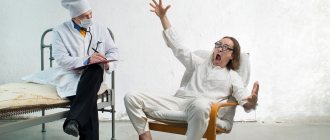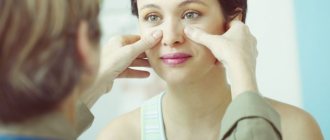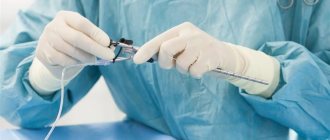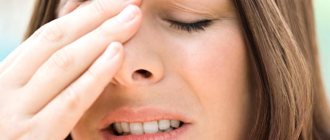The prevalence of generalized anxiety disorder (GAD) is 6%. The median age of onset was 31 years, and the mean age of onset was 32.7 years. Prevalence in children is 3%, in adolescents – 10.8%. The age of onset of the disease in children and adolescents is between 10 and 14. There is evidence that GAD is 2-3 times more common in women than in men, and that GAD is more common in older people. This disorder often goes unrecognized and less than a third of patients receive adequate treatment. The situation is complicated by the fact that it may be necessary to separate GAD in children from GAD in adults.
GAD is associated with functional impairment and decreased quality of life. When initially visiting a doctor, 60-94% of patients with GAD complain of painful physical symptoms and in 72% of cases this is the reason for seeking medical help.
We present to your attention a review translation of clinical guidelines for the treatment of generalized anxiety disorder, compiled by experts from the Canadian Anxiety Disorders Association. The translation was prepared jointly by the scientific Internet portal “Psychiatry & Neuroscience” and the Psychiatry Clinic “Doctor SAN” (St. Petersburg).
Diagnosis
GAD is characterized by increased anxiety and worry (most days during the past six months) about a variety of events and activities, such as school or work. In addition, GAD is associated with restlessness, muscle tension, fatigue, problems concentrating, irritability and sleep disturbances.
DSM-5 criteria for diagnosing GAD
- Excessive anxiety and worry (anxious anticipation) about a variety of events and activities, such as school or work.
- The person has difficulty gaining control over anxiety
- Excessive anxiety and worry are associated with at least three of the following symptoms, affecting a person most days for at least six months: Restlessness or feeling on edge, fatigue, difficulty concentrating, irritability, muscle tension or sleep disturbances
How can the doctor help?
There is a huge mistrust of doctors in our country. The rather low level of medicine in the regions, lack of funding, low salaries of doctors, and with it a negligent attitude towards work also have an impact. Of course, there are good and bad doctors and clinics; if you do not trust budget institutions, contact a private center.
If you have symptoms of the disorder, you should immediately contact a psychotherapist. A specialist will be able to quickly recognize the disease, carry out diagnostics and take tests, examine the patient and draw up an individual psychopharmacological treatment plan. Clinical psychologists at our center can also make a diagnosis of depressive disorder. Quite often our patients experience alcoholic depression due to prolonged abuse of alcoholic beverages. “Center for Healthy Youth” has all the capabilities, experience and necessary resources to eliminate all symptoms of the disease and normalize the psycho-emotional state of the patient.
Many people are afraid of psychologists. “Am I crazy?” – can often be heard from patients. However, neuroses and depressive states do not mean that a person is mentally ill, and he will be admitted to a mental hospital and registered. When contacting a private center, people are treated completely anonymously. Even if you go to a public clinic, you will not be registered at the dispensary. Specialists do not have the right to disclose the diagnosis or provide information about the patient’s condition to third parties, since this is a medical confidentiality. A person can go through the treatment process completely calmly. Quite often, an experienced doctor will only need to conduct psychotherapy sessions in order to achieve stable remission. Personal communication with a doctor and following his recommendations is all that is needed for a speedy recovery. You should not prescribe medications yourself, it can end badly.
If you feel increasing symptoms of depression, you should not wait for a miracle and live with it for years, there is a way out, modern techniques and the latest drugs will help you cope with the disease. Doctors will help you regain the joy of life even with chronic pathology.
Psychological help
Meta-analyses clearly show that CBT significantly reduces GAD symptoms. A small number of studies have compared the effects of CBT and pharmacotherapy, which have shown approximately the same effect size. Individual and group psychotherapy are equally effective in reducing anxiety, but individual psychotherapy may be more effective in reducing anxiety and depressive symptoms.
Psychotherapy intensity was assessed in a meta-analysis of 25 studies. For reducing anxiety, a course of psychotherapy lasting less than eight sessions is as effective as a course lasting more than eight sessions. In reducing anxiety and depression, more intensive courses are more effective than courses with a small number of sessions. Several studies have shown the benefits of ICBT.
The meta-analysis found no significant difference between the effects of CBT and relaxation therapy. However, more recent research suggests limited effectiveness of relaxation therapy. A large RCT found that balneotherapy, a relaxation therapy with spa treatments, was better than SSRIs in reducing anxiety; however, there are doubts about the validity of the study.
The effectiveness of behavioral psychotherapy based on acceptance, metacognitive psychotherapy, CBT aimed at correcting the perception of uncertainty, mindfulness-based cognitive therapy has been proven.
Psychodynamic psychotherapy can also provide results, but at the moment there is no clear evidence of its effectiveness.
Adding interpersonal and emotional-process therapy to CBT does not provide significant benefits compared to CBT without the addition. A preliminary conversation before starting a CBT course helps reduce resistance to therapy and improve compliance - this strategy is especially useful in severe cases.
What is depression?
Don't think it's just a bad mood or apathy.
If you have blues and despondency, this does not mean that there is depression. In fact, this is a disease that is characterized by serious changes in the biochemical processes of the human brain. Signs of the disease may persist for more than two weeks, while ordinary frustration or sadness disappears much sooner. In the absence of timely treatment for severe depression, the condition drags on for years and develops into an intractable chronic form. It often happens that a person does not even realize that he is sick. It is important to understand that treatment of neuroses and depression is necessary, this should be done by a specialist with extensive experience in this field. What is clinical depression , and why does it require treatment? The disease develops due to a disruption in the production of certain neurotransmitters in the brain, which are responsible for receiving positive emotions. The disease makes a person apathetic, he is rarely in a good mood, and most often has a pessimistic attitude.
Combination of psychotherapy and pharmacological treatment
Few data are available on the use of combinations of psychotherapy and pharmacological treatment. A meta-analysis showed that the combination of pharmacological treatment with CBT was more effective than CBT alone when comparing results immediately after treatment, but not after six months. Data are available from studies comparing the combination of diazepam or buspirone plus CBT with CBT alone. The small number of studies comparing pharmacotherapy with pharmacotherapy plus psychotherapy has produced conflicting results.
There is currently no rationale for combining CBT with pharmacotherapy. But, as with other anxiety disorders, if the patient does not improve with CBT, the use of pharmacotherapy is recommended. Likewise, if pharmacotherapy does not improve, then CBT can be expected to help. Meta-analyses and several RCTs suggest that psychotherapy benefits are maintained 1-3 years after treatment.
Is it possible to get rid of depression once and for all?
Is it possible to cure anxiety-depressive disorder? It is impossible to answer this question unequivocally in the affirmative. The disease can progress in different ways and have many concomitant diseases of varying severity. Each individual case should be considered individually. In most cases, depressive disorder can be treated, but the risk that the disease will return or remain permanently cannot be ruled out. It is very important to monitor any changes and, if necessary and if there is a visible deterioration in the condition, immediately contact a psychotherapist.
Following your doctor's recommendations and taking preventive measures will help you avoid relapse. You need to get into the habit of doing sports, physical education, or at least gymnastics in the morning. Remember that no one will take care of you except you. Forget about smoking and alcohol, bad habits only provoke the development of depression. It is also important to maintain a sleep schedule; sleep less than eight hours leads to negative processes in the central nervous system and has an undesirable effect on the psyche. Avoid stress as much as possible.
Pharmacological treatment
SSRIs, SSRIs, TCAs, benzodiazepines, pregabalin, quetiapine XR have been proven effective in the treatment of GAD.
First line
Antidepressants (SSRIs and SSRIs): RCTs show the effectiveness of escitalopram, sertraline and paroxetine, as well as duloxetine and venlafaxine XR. The effectiveness of SSRIs and SSRIs is the same. There is evidence that escitalopram is less effective than venlafaxine XR or quetiapine XR.
Other antidepressants: There is evidence that agomelatine is as effective as escitalopram.
Pregabalin: Pregabalin is as effective as benzodiazepines (level 1 evidence).
Second line
Benzodiazepines: Alprazolam, bromazepam, diazepam and lorazepam have been shown to be effective (level 1 evidence). Although the level of evidence is high, these drugs are recommended as second-line treatment and usually for short-term use due to side effects, dependence and withdrawal symptoms.
TCAs and other antidepressants: Imipramine is as effective as benzodiazepines in the treatment of GAD (level 1 evidence). But due to side effects and potentially toxic overdose, imipramine is recommended as a second-line treatment. There is little data on bupropion XL, but there is a study in which it was shown to be as effective as escitalopram (first-line agent), so it can be used as a second-line agent.
Vortioxetine, a so-called serotonin modulator, acts on different serotonin receptors. Research on the effectiveness of vortioxetine is inconsistent, but there is evidence to support its use for GAD.
Quetiapine XR: Quetiapine XR has proven efficacy and is equivalent to that of antidepressants. But quetiapine is associated with weight gain, sedation, and a higher rate of treatment discontinuation due to side effects than antidepressants. Because of problems associated with tolerability and safety of atypical antipsychotics, this drug is recommended as a second-line treatment for patients who cannot take antidepressants or benzodiazepines.
Other drugs: Buspirone has been shown to be as effective as benzodiazepines in several RCTs. There is insufficient data to compare buspirone with antidepressants. Due to its lack of effectiveness in clinical practice, buspirone should be classified as a second-line drug.
Hydroxyzine has shown efficacy close to that of benzodiazepines and buspirone, but there is insufficient clinical experience with the use of this drug for GAD.
Third line
Third-line drugs include drugs with poorly studied efficacy, side effects, and rarely used as a primary treatment for GAD.
Additional drugs
The adjunctive strategy has been studied in patients who have not responded adequately to SSRI treatment and may be used in cases of refractory GAD.
Second-line add-on drugs: Pregabalin, as an adjunct to the main drug, has been shown to be effective in treating patients who have not responded to previous treatment (level of evidence: 2).
Third-line add-on drugs: A meta-analysis showed no improvement with atypical antipsychotics as add-on drugs, but did show an increase in treatment failure. Studies of the effectiveness of risperidone and quetiapine as adjunctive agents show conflicting results.
Due to weak evidence of effectiveness, risk of weight gain, and metabolic side effects, atypical antipsychotics should be reserved for refractory cases of GAD and, with the exception of quetiapine XR, used only as an adjunct to the primary drug.
A drug | Level of evidence |
| SSRIs | |
| Escitalopram | 1 |
| Paroxetine | 1 |
| Sertraline | 1 |
| Fluoxetine | 3 |
| Citalopram | 3 |
| SSRI | |
| Duloxetine | 1 |
| Venlafaxine | 1 |
| TCA | |
| Imipramine | 1 |
| Other antidepressants | |
| Agomelatine | 1 |
| Vortioxetine | 1 (conflicting data) |
| Bupropion | 2 |
| Trazadone | 2 |
| Mirtazapine | 3 |
| Benzodiazepines | |
| Alprazolam | 1 |
| Bromazepam | 1 |
| Diazepam | 1 |
| Lorazepam | 1 |
| Anticonvulsants | |
| Pregabalin | 1 |
| Divalproex | 2 |
| Tiagabine | 1 (negative result) |
| Pregabalin as an adjunctive drug | 2 |
| Other drugs | |
| Buspirone | 1 |
| Hydroxyzine | 1 |
| Pexacerfont | 2 (negative result) |
| Propranolol | 2 (negative result) |
| Memantine | 4 (negative result) |
| Pindolol as an additive drug | 2 (negative result) |
| Atypical antipsychotics | |
| Quetiapine | 1 |
| Quetiapine as an add-on drug | 1 (conflicting data) |
| Risperidone as an add-on drug | 1 (conflicting data) |
| Olanzapine as an add-on drug | 2 |
| Aripiprazole as an add-on drug | 3 |
| Ziprasidone as monotherapy or in combination | 2 (negative result) |
| First line: Agomelatine, duloxetine, escitalopram, paroxetine, pregabalin, sertraline, venlafaxine Second line: Alprazolam*, bromazepam*, bupropion, buspirone, diazepam, hydroxyzine, imipramine, lorazepam*, quetiapine*, vortioxetine Third line: Citalopram, divalproex, fluoxetine, mirtazapine, trazodone Additional drugs (second line): Pregabalin Additional drugs (third line): Aripiprazole, olanzapine, quetiapine, risperidone Not recommended as adjunct drugs: Ziprasidone Not recommended: Beta blockers (propranolol), pexacefront, tiagabine *These drugs have their own mechanisms of action, effectiveness and safety profile. Benzodiazepines are best used as second-line drugs in most cases unless there is a risk of abuse; It is better to postpone bupropion XL for later. Quetiapine XR is a good choice in terms of effectiveness, but given the metabolic problems associated with atypical antipsychotics, it is best reserved for patients who cannot be prescribed antidepressants or benzodiazepines. |
Types of disorder
With the right methods, medications and treatment plan, the disease can be stopped and cured, regardless of the stage and duration of development. If the disorder is caused by the absence or deficiency of certain vitamins and substances in the body, the person’s condition will normalize as soon as the balance is restored. When treating endogenous or psychogenic depression, special complex therapy is required. In the first case, the disease is caused by a malfunction of the psyche, in the second – by traumatic events.
For example, an elderly woman can take the death of her husband to heart; the loss of a person with whom she lived hand in hand is very traumatic, which can cause the development of not only neuroses, but also dementia. In this case, doctors advise treating depression in women in a clinic.
Treatment for postpartum depression, which is very important for a young mother, is no less dangerous. During pregnancy and after childbirth, a huge number of changes occur in a woman’s body. Not everyone gets used to the new role right away; some are afraid of the oncoming responsibility; others are not confident in the support of their spouse. The result is mental disorder, panic attacks, unreasonable fears, breakdowns.
Today, specialists quite often treat bipolar depression. This disease is getting younger every year, but it should not be confused with a number of other abnormalities. Bipolar disorder is often confused with increased emotionality. If you feel the symptoms of this disease, call the clinic; today it is possible to both treat depression in a hospital in Moscow and undergo therapy on an outpatient basis.
Do you want to know about the cost of services?
8 call our specialist
Maintenance pharmacological therapy
A meta-analysis showed that long-term use of SSRIs (6–12 months) was effective in preventing relapse (odds ratio for relapse = 0.20).
Relapse after 6-18 months of duloxetine, escitalopram, paroxetine and venlayaxin XR was observed in 10-20% of cases, compared with 40-56% in the control group. Continuing pregabalin and quetiapine XR also prevents relapse after 6-12 months.
Long-term RCTs have shown that escitalopram, paroxetine and venlafaxine XR help maintain benefit over six months.











